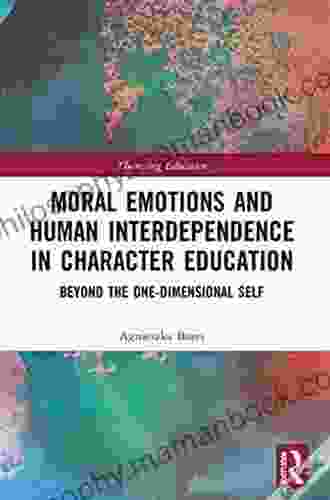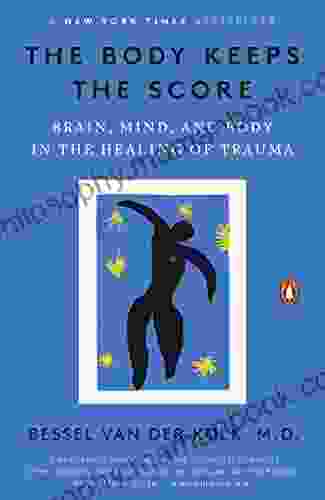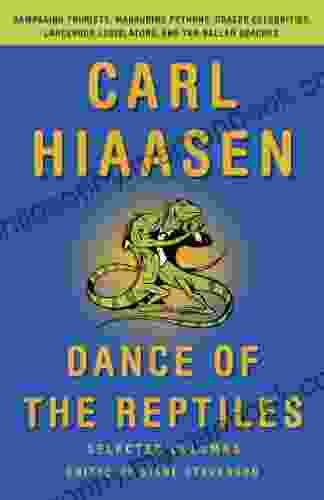The Interconnectedness of Brain, Mind, and Body in the Healing of Trauma

Trauma is a complex and multifaceted experience that can have profound effects on an individual's physical, mental, and emotional health. While traditional approaches to trauma treatment have often focused on the psychological aspects of the experience, recent research has highlighted the importance of considering the interconnectedness of the brain, mind, and body in the healing process. In this article, we will explore the role of the brain, mind, and body in trauma recovery and discuss the benefits of an integrative approach to treatment.
The Impact of Trauma on the Brain
Exposure to traumatic events can significantly affect the structure and function of the brain. Studies have shown that trauma can lead to changes in the amygdala, a brain region responsible for processing fear and threat. These changes can result in hyperactivity of the amygdala, leading to an exaggerated startle response and difficulty regulating emotions.
4.8 out of 5
| Language | : | English |
| File size | : | 9892 KB |
| Text-to-Speech | : | Enabled |
| Screen Reader | : | Supported |
| Enhanced typesetting | : | Enabled |
| Word Wise | : | Enabled |
| Print length | : | 466 pages |
Trauma can also affect the hippocampus, a brain region involved in memory and cognition. Damage to the hippocampus can impair memory formation and recall, making it challenging for individuals to process and integrate traumatic experiences.
The Mind-Body Connection in Trauma
The mind and body are deeply connected, and trauma affects both aspects of human experience. Individuals who have experienced trauma may experience a range of physical symptoms, including chronic pain, fatigue, digestive problems, and sleep disturbances. These symptoms can significantly impact an individual's quality of life and interfere with their ability to function in daily life.
The mind-body connection also manifests in the way that individuals think and feel about themselves and the world around them. Trauma can lead to negative self-perceptions, feelings of guilt and shame, and difficulty trusting others. These cognitive and emotional responses can perpetuate the cycle of trauma and make it more difficult for individuals to heal.
Integrative Approaches to Trauma Treatment
Given the interconnected nature of brain, mind, and body in trauma, it is essential to adopt an integrative approach to treatment. This approach combines traditional psychotherapeutic techniques with interventions that address the physical and emotional components of trauma.
One effective integrative approach is called somatic experiencing. This therapy focuses on helping individuals reconnect with their bodies and develop a sense of safety and control. Somatic experiencing involves a range of techniques, including body awareness exercises, gentle movement, and mindfulness practices.
Another integrative approach is called neurofeedback. This therapy uses brainwave monitoring to help individuals learn how to regulate their brain activity. Neurofeedback can be particularly helpful in reducing hyperactivity of the amygdala and improving emotional regulation.
In addition to these specific therapies, integrative approaches to trauma treatment may also include elements such as mindfulness meditation, yoga, and massage therapy. These practices can help individuals reduce stress, improve sleep, and promote relaxation.
Benefits of Integrative Trauma Treatment
Integrative approaches to trauma treatment have been shown to have a number of benefits for individuals who have experienced trauma. These benefits include:
* Improved symptom reduction: Integrative therapies can effectively reduce symptoms associated with trauma, such as chronic pain, fatigue, and sleep disturbances. * Enhanced emotional regulation: These therapies help individuals develop skills for managing emotions and reducing the intensity of emotional responses. * Increased self-awareness: Integrative therapies promote greater awareness of the mind-body connection and help individuals understand how trauma affects their thoughts, feelings, and behaviors. * Reduced risk of re-traumatization: By addressing both the psychological and physical aspects of trauma, integrative therapies can help individuals become more resilient and less vulnerable to re-traumatization.
The interconnectedness of brain, mind, and body plays a crucial role in the healing of trauma. Integrative approaches to treatment that address all aspects of the human experience can effectively reduce symptoms, enhance emotional regulation, increase self-awareness, and reduce the risk of re-traumatization. By considering the unique needs of each individual, therapists can tailor integrative treatment plans that support the holistic recovery of individuals who have experienced trauma.
4.8 out of 5
| Language | : | English |
| File size | : | 9892 KB |
| Text-to-Speech | : | Enabled |
| Screen Reader | : | Supported |
| Enhanced typesetting | : | Enabled |
| Word Wise | : | Enabled |
| Print length | : | 466 pages |
Do you want to contribute by writing guest posts on this blog?
Please contact us and send us a resume of previous articles that you have written.
 Top Book
Top Book Novel
Novel Fiction
Fiction Nonfiction
Nonfiction Literature
Literature Paperback
Paperback Hardcover
Hardcover E-book
E-book Audiobook
Audiobook Bestseller
Bestseller Classic
Classic Mystery
Mystery Thriller
Thriller Romance
Romance Fantasy
Fantasy Science Fiction
Science Fiction Biography
Biography Memoir
Memoir Autobiography
Autobiography Poetry
Poetry Drama
Drama Historical Fiction
Historical Fiction Self-help
Self-help Young Adult
Young Adult Childrens Books
Childrens Books Graphic Novel
Graphic Novel Anthology
Anthology Series
Series Encyclopedia
Encyclopedia Reference
Reference Guidebook
Guidebook Textbook
Textbook Workbook
Workbook Journal
Journal Diary
Diary Manuscript
Manuscript Folio
Folio Pulp Fiction
Pulp Fiction Short Stories
Short Stories Fairy Tales
Fairy Tales Fables
Fables Mythology
Mythology Philosophy
Philosophy Religion
Religion Spirituality
Spirituality Essays
Essays Critique
Critique Commentary
Commentary Glossary
Glossary Bibliography
Bibliography Index
Index Table of Contents
Table of Contents Preface
Preface Introduction
Introduction Foreword
Foreword Afterword
Afterword Appendices
Appendices Annotations
Annotations Footnotes
Footnotes Epilogue
Epilogue Prologue
Prologue Michael F Fleming
Michael F Fleming Viola Davis
Viola Davis Marc Monroe
Marc Monroe Aidan Nichols
Aidan Nichols Melanie Moreland
Melanie Moreland Derek Robinson
Derek Robinson Bessel Van Der Kolk
Bessel Van Der Kolk Nicole Dweck
Nicole Dweck Sulayman Al Bassam
Sulayman Al Bassam Anthony D Fredericks
Anthony D Fredericks Herman Brock Jr
Herman Brock Jr Tyler Gordon
Tyler Gordon John Michael Corrigan
John Michael Corrigan Susan Yellin
Susan Yellin Aimee Broussard
Aimee Broussard Print Replica Kindle Edition
Print Replica Kindle Edition Danielle Vogel
Danielle Vogel Ian Christopher
Ian Christopher Andreas Rasche
Andreas Rasche Dale Merrill
Dale Merrill
Light bulbAdvertise smarter! Our strategic ad space ensures maximum exposure. Reserve your spot today!

 Yasushi InoueMoral Emotions and Human Interdependence in Character Education: Exploring...
Yasushi InoueMoral Emotions and Human Interdependence in Character Education: Exploring...
 Allen ParkerAn Extensive Exploration of Neapolitan Poetry: A Rich Linguistic Tapestry of...
Allen ParkerAn Extensive Exploration of Neapolitan Poetry: A Rich Linguistic Tapestry of... John Dos PassosFollow ·14.4k
John Dos PassosFollow ·14.4k Billy FosterFollow ·6.1k
Billy FosterFollow ·6.1k Glenn HayesFollow ·5.9k
Glenn HayesFollow ·5.9k Nathan ReedFollow ·15.8k
Nathan ReedFollow ·15.8k Andy HayesFollow ·10.7k
Andy HayesFollow ·10.7k Eugene ScottFollow ·3.3k
Eugene ScottFollow ·3.3k H.G. WellsFollow ·15.4k
H.G. WellsFollow ·15.4k Avery SimmonsFollow ·10.3k
Avery SimmonsFollow ·10.3k

 Ignacio Hayes
Ignacio HayesShipwrecked For 13 Days On Coral Reef: A Tale of Survival...
In the vast expanse of the...

 Gerald Parker
Gerald ParkerWhere the World Is Quiet: Delving into a Realm of Serene...
A Tapestry of Serenity In the tapestry...

 Charles Bukowski
Charles BukowskiPloughshares Winter 2009: Guest Edited by Tony Hoagland
Ploughshares...

 Rubén Darío
Rubén DaríoAnthology of Massachusetts Poets: William Stanley...
William Stanley...

 Jason Hayes
Jason HayesSean Kenney's Mesmerizing Robot Masterpieces: A Journey...
In a realm where imagination meets...

 Terence Nelson
Terence NelsonUnveiling the Elite Force: The Commander Men of Hidden...
In the shadows of society, where justice...
4.8 out of 5
| Language | : | English |
| File size | : | 9892 KB |
| Text-to-Speech | : | Enabled |
| Screen Reader | : | Supported |
| Enhanced typesetting | : | Enabled |
| Word Wise | : | Enabled |
| Print length | : | 466 pages |








